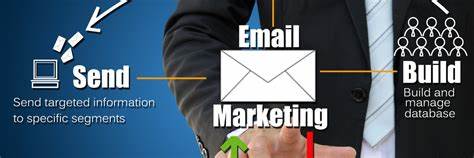Exploring the Effectiveness of Email Marketing Campaigns
Email marketing has long been a cornerstone of digital marketing strategies, allowing businesses to communicate directly with their audience. Despite the rise of social media and other marketing channels, email marketing remains one of the most effective methods for engaging customers, building relationships, and driving sales. In this article, we will explore the effectiveness of email marketing campaigns, examining their advantages, challenges, best practices, and future potential.
The Power of Email Marketing
Email marketing is a direct form of communication that enables businesses to send targeted messages to their audience’s inbox. The effectiveness of email marketing lies in its ability to deliver personalized content, foster customer relationships, and generate measurable results. Here are some key reasons why email marketing is a powerful tool:
- Wide Reach: With over 4 billion email users globally, email marketing offers unparalleled reach. Businesses can connect with audiences across demographics, geographies, and industries.
- Cost-Effectiveness: Compared to traditional advertising methods, email marketing is highly cost-efficient. Businesses can launch campaigns with minimal investment and achieve high returns.
- Personalization: Advanced tools and data analytics allow marketers to tailor emails to individual recipients based on their preferences, behaviors, and purchase history. Personalized emails significantly improve engagement and conversion rates.
- Measurable Metrics: Email marketing platforms provide detailed analytics, including open rates, click-through rates (CTR), and conversion rates. These metrics help businesses measure campaign performance and optimize strategies.
- High ROI: According to industry research, email marketing delivers an average return on investment (ROI) of $36 for every $1 spent, making it one of the most lucrative marketing channels.
Key Components of Effective Email Marketing Campaigns
- Audience Segmentation: Dividing the email list into smaller, more targeted groups based on factors like demographics, interests, and past behavior ensures that messages are relevant and engaging.
- Compelling Subject Lines: The subject line is the first thing recipients see. Crafting a compelling, concise, and personalized subject line can significantly increase open rates.
- Engaging Content: High-quality content that resonates with the audience is crucial. Emails should provide value, whether through educational information, exclusive offers, or entertaining content.
- Clear Call-to-Action (CTA): Every email should have a clear, actionable purpose. A strong CTA guides recipients toward the desired action, such as visiting a website, making a purchase, or signing up for an event.
- Mobile Optimization: With over half of all emails opened on mobile devices, it is essential to ensure that emails are mobile-friendly, with responsive design and easily clickable links.
- Automation and Timing: Automating email campaigns ensures timely delivery and consistent communication. Automated workflows, such as welcome emails and abandoned cart reminders, enhance customer experience.
Advantages of Email Marketing
- Enhanced Customer Retention: Regular communication through email helps maintain customer interest and loyalty. Newsletters, product updates, and personalized offers keep customers engaged.
- Lead Generation and Nurturing: Email marketing effectively captures leads through sign-up forms and nurtures them with relevant content until they are ready to convert.
- Global Accessibility: Emails transcend geographical boundaries, allowing businesses to reach international audiences without additional costs.
- Integration with Other Channels: Email marketing integrates seamlessly with other digital marketing channels, such as social media and content marketing, creating cohesive campaigns.
- Scalability: Email marketing campaigns can be scaled to fit businesses of all sizes, from small startups to large corporations.
Challenges of Email Marketing
- Spam Filters: Emails that are poorly crafted or lack proper compliance with regulations may end up in spam folders, reducing their effectiveness.
- Overcrowded Inboxes: With the average person receiving dozens of emails daily, standing out in a crowded inbox can be challenging.
- Compliance and Privacy Concerns: Regulations such as the GDPR and CAN-SPAM Act require businesses to adhere to strict rules regarding consent and data protection.
- List Management: Maintaining a clean and updated email list is time-consuming but necessary to ensure that campaigns reach the intended audience.
- Email Fatigue: Sending too many emails can overwhelm recipients, leading to unsubscribes and diminished trust.
Success Stories in Email Marketing
- Amazon: Amazon’s email marketing strategy revolves around personalization. From product recommendations to cart reminders, their emails are tailored to individual customer behavior, driving significant sales.
- BuzzFeed: BuzzFeed’s newsletters deliver curated content directly to subscribers. Their engaging and shareable emails have helped them build a loyal audience.
- Airbnb: Airbnb uses email marketing to inspire travel through visually appealing content, personalized recommendations, and special offers.
Best Practices for Email Marketing
- Obtain Consent: Always ensure that recipients have opted in to receive emails. This builds trust and complies with legal requirements.
- Test and Optimize: Regularly test different elements of emails, such as subject lines, content, and CTAs, to determine what resonates best with the audience.
- Focus on Quality Over Quantity: Sending fewer, high-quality emails is more effective than bombarding recipients with irrelevant messages.
- Monitor Metrics: Use analytics to track performance and adjust strategies accordingly. Pay attention to open rates, CTRs, and conversion rates.
- Segment and Personalize: Leverage data to create personalized campaigns that cater to the specific needs and interests of different audience segments.
The Future of Email Marketing
As technology continues to evolve, email marketing is poised to become even more sophisticated. Innovations such as artificial intelligence (AI) and machine learning will enable marketers to analyze data more effectively, automate processes, and deliver hyper-personalized experiences.
Interactive emails that allow recipients to engage directly within the email, such as filling out forms or making purchases, will further enhance user experience. Additionally, integrating email marketing with emerging technologies like augmented reality (AR) could create immersive and engaging campaigns.
Sustainability will also play a role, with businesses adopting eco-friendly practices in their email marketing strategies, such as minimizing unnecessary emails to reduce digital carbon footprints.
Conclusion
Email marketing remains a vital component of digital marketing, offering businesses a direct, cost-effective, and measurable way to connect with their audience. By leveraging best practices, overcoming challenges, and staying ahead of technological advancements, businesses can maximize the effectiveness of their email marketing campaigns.
As the digital landscape continues to evolve, email marketing’s adaptability and proven success ensure its place as a cornerstone of modern marketing strategies. For businesses seeking to build strong relationships, foster loyalty, and drive growth, email marketing remains an indispensable tool.


